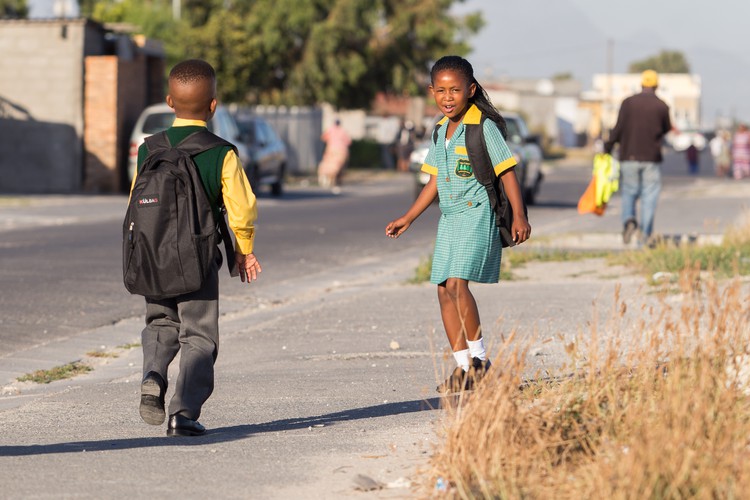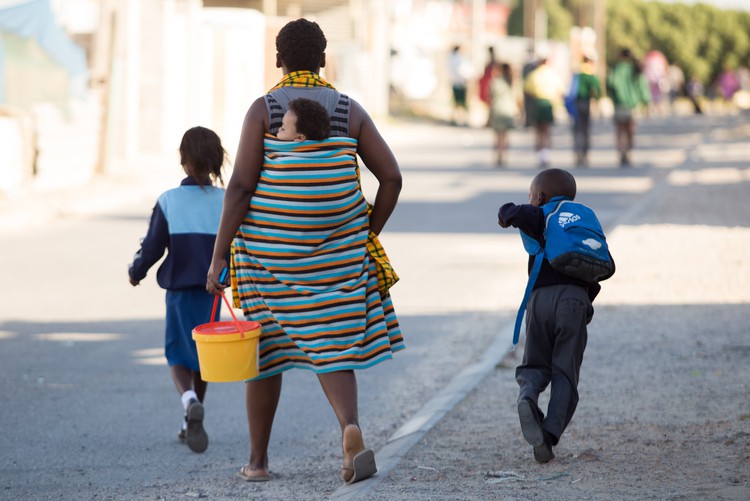
A learner trips over his foot on the first day of school.
17 January 2018
It’s just after 6am in Nyanga, and already scores of neatly uniformed children are making their way to the bus and taxi terminus and to nearby schools. It’s sunny outside and the first day of school, so most of the children are accompanied by parents. What’s unusual though is that many of the parents are dressed in bright green vests and are not with their own children.
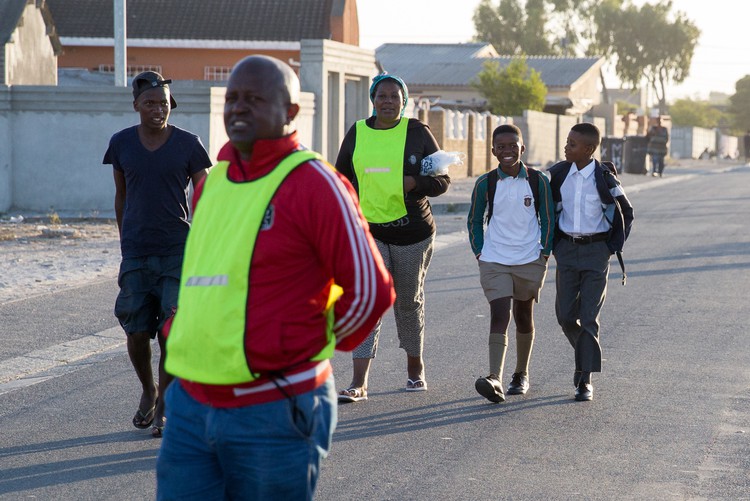
The “walking bus”, which was launched last September, is run by about 20 parent volunteers. “Kids go to school and on their way they get robbed,” said Sidney Botha, parent of a two-year-old. He says learners are being robbed of their cellphones, money and even bus tickets, which are sold by the thieves.
Many of the parents have no work and decided to use their time to help. “We can do something instead of waiting for government or police,” said Botha.
According to CrimeStatsSA, Nyanga has the highest rate of murder and sexual offences in the country. Last year the Minister of Police Fikile Mbalula announced that 100 dedicated Tactical Response Team officers would be stationed in Nyanga, but residents are sceptical.
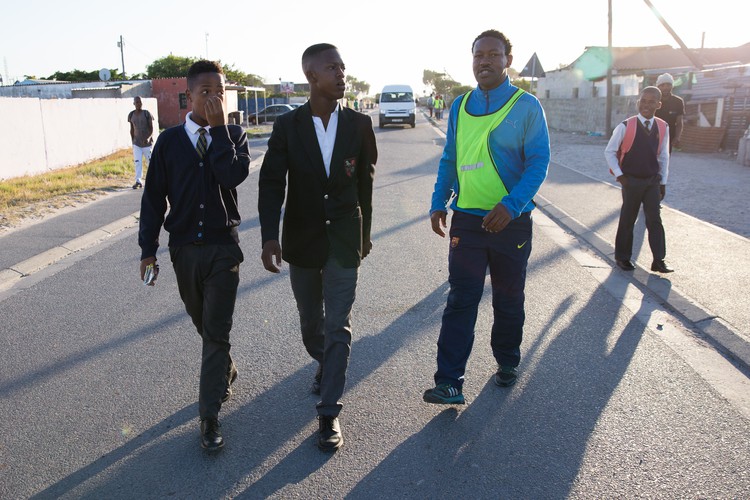
Sea Point High School learner Sandile Nomjila was robbed of his phone last June. He says that because of the volunteers people are no longer getting robbed.
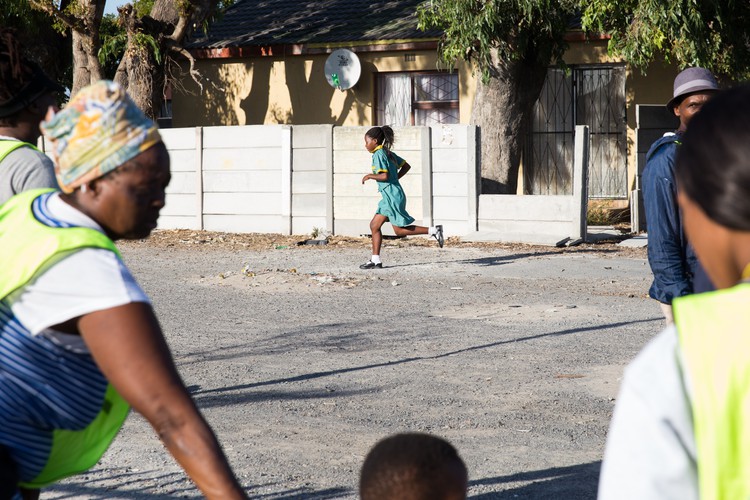
The idea behind the “walking bus” is to create visibility. The volunteers always ask the children first if they want to be escorted as some of them find the bright green vests embarrassing and prefer walking alone. In that case the volunteers will still keep the children in sight.
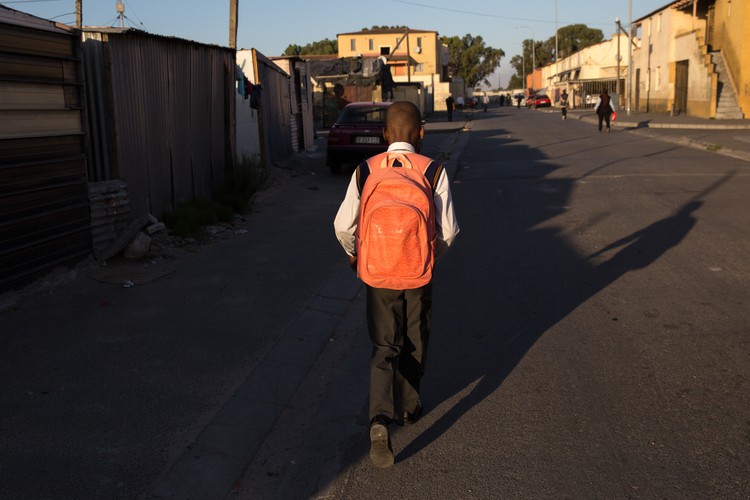
Ayanda Ndesi, another volunteer parent, says he prevented a robbery last year. Three learners were being threatened with knives. He scared off the robbers and escorted the school children to the terminus. The robbers retaliated with guns but he managed to get away unscathed.
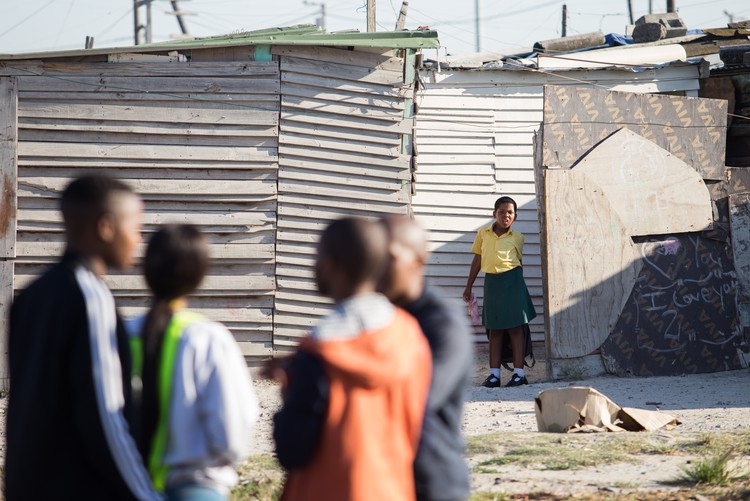
After 7am, the “walking bus” moves to different parts of Nyanga to escort children. Parents say the crime rate has gone down where there is visibility. The volunteers make a big difference, says parent Julia TyaTyam, especially since parents cannot always accompany their children to school.
But criminals are moving to areas where the “walking bus” volunteers are out of sight. And in winter, when the sun rises much later, criminals have the cover of darkness to their advantage.
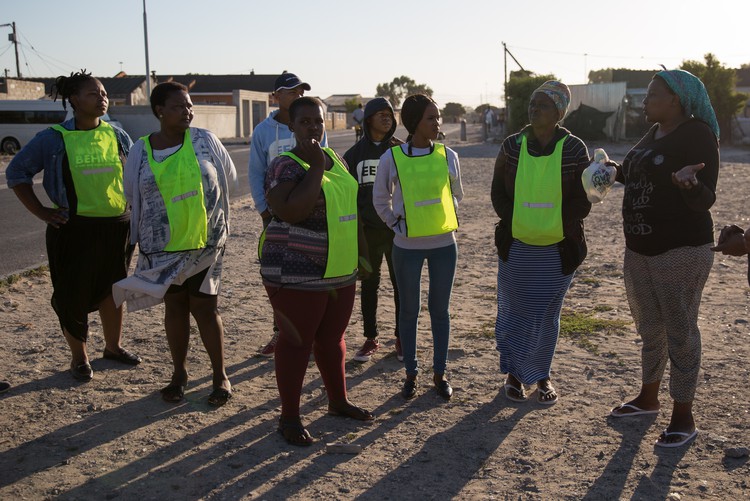
Some of the “walking bus” volunteers are also Equal Education (EE) members. “Our main focus is to look after our children while they go to school,” says EE community liaison officer Daphne Erosi. Erosi says that they have asked for CCTV cameras and visible policing but “we don’t get that”.
“The government is failing us in terms of safety.”
The “walking bus” is part of EE’s Safer Schools campaign. Erosi says the organisation wants to expand to more areas but mobilisation and volunteers are needed.
